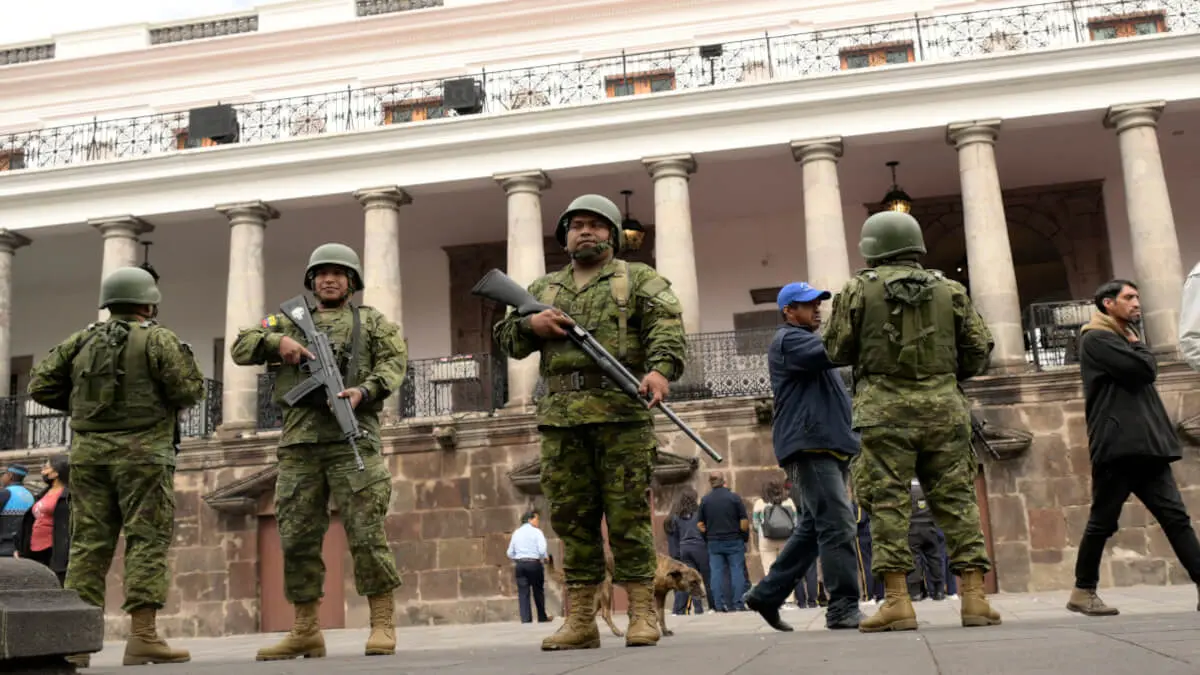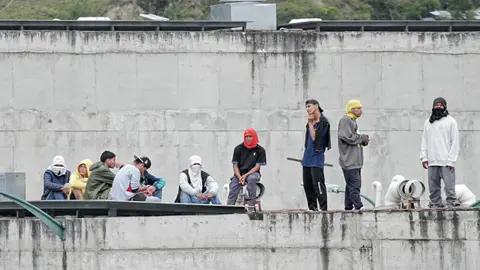Chaos grips Ecuador

The situation in Ecuador has reached dramatic and hard to imagine limits: it is no exaggeration to say that the violence unleashed by drug traffickers and terrorist gangs is beyond the control of the security forces and makes it impossible for people to go out on the streets without facing serious risks to their lives.
Tuesday's murder of popular singer Diego Gallardo on his way to pick up his son at the school gate is an example of the generalised situation which can only be described as anarchic and uncontrolled.
Difficult situation for the Ecuadorian state
The new president, Daniel Noboa, elected in October after the resignation of his predecessor Guillermo Lasso - already overwhelmed by his inability to take control of the situation - has decreed a state of internal armed conflict, which can be interpreted as civil war. The police and armed forces have been instructed to crack down on those causing the chaos unceremoniously. But the perpetrators of the chaos have not been intimidated by the threat. They are numerous, armed and supported by Mexican drug gangs.
On Tuesday, too, a group stormed a television station in Guayaquil -- the country's most populous city -- during a live broadcast and took over the studios for several hours. The images are making their way around the world. The police managed to regain control, free the imprisoned workers and arrest thirteen of the assailants.
Incidents of this nature are repeated throughout the territory and the number of murders is high. People live in fear as the numerous terrorist organisations engaged in indiscriminate violence have taken over the country. Fear was heightened by the news that the main gang leaders had fled from the prisons where they were being held.
Ecuador has the only conservative government in Latin America, but its chaotic state is not so much politically motivated as the result of widespread and pluralistic crime that does not discriminate. The situation is aggravated by clashes between rival gangs that lead to street fighting and the resulting death toll. All the crimes in the Penal Code, from murder to robbery and assault, are counted by the hundreds on a daily basis. Mexican President López Obrador has expressed his solidarity with his Ecuadorian counterpart, although he is unable to provide much help, given that he himself is unable to deal with the gangs that are behind the Ecuadorian gangs in his country.
The solution that President Noboa contemplated at the beginning of his term in office is the one implemented by his Salvadoran colleague Nayib Bukele, who opted to incarcerate gang members operating in El Salvador. Several thousand criminals or suspects were arrested and locked up in makeshift prisons. The images of those overcrowded prisons in recent months, with thousands of detainees lying naked on the floor, sparked protests and complaints from some human rights organisations that they have been violated.


